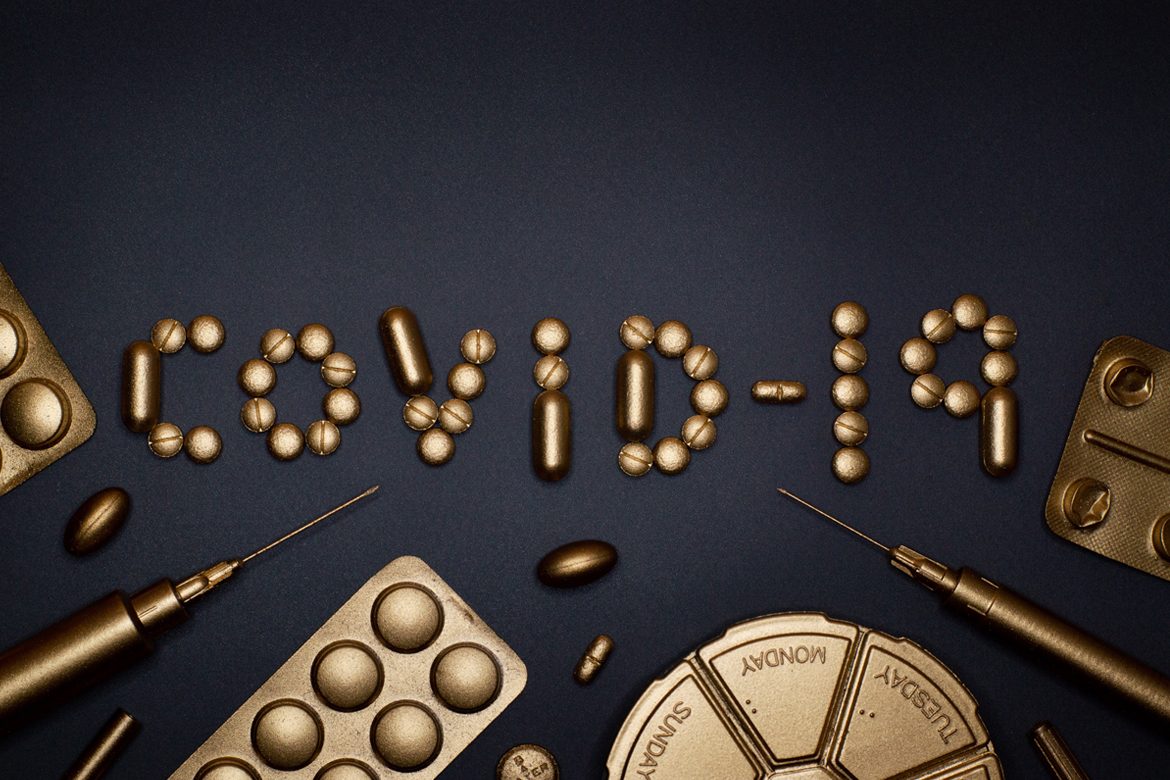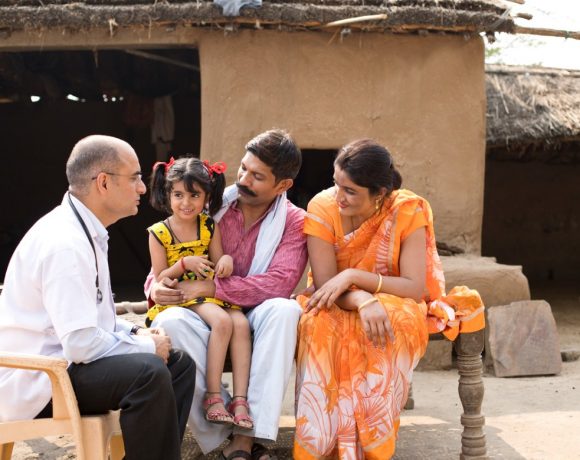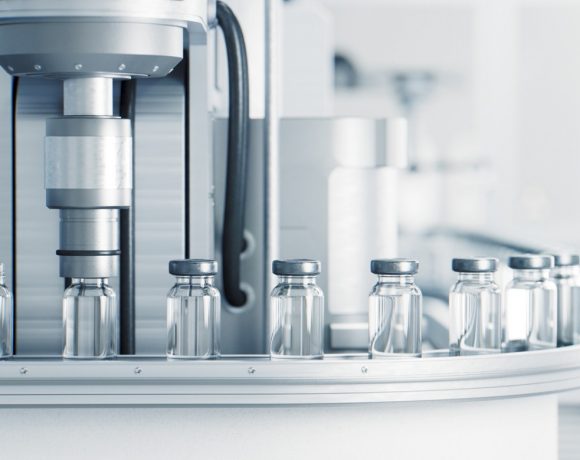- Japan, with its strength in biotechnology, has several promising drug candidates for Covid- 19, including antibodies, peptide medications, cell therapy and nucleic acid medicine.
- The approach to create a drug with antibodies from recovered patients is being investigated by various companies in Japan, such as, Takeda Pharmaceutical Co. and Evec Inc., a spin-off of Hokkaido University that specialises in the field.
- Currently, in Japan, “Remdesivir” and “Dexamethasone” are two major drugs that have been approved for COVID-19. Both are so-called “repurposed drugs” that initially have been developed for the treatment of a different disease but have been found to be effective in treating COVID-19 patients.
The outbreak of the novel coronavirus disease 2019 (COVID-19) has caused the current worldwide pandemic and overwhelmed the healthcare system globally. To prevent further spread of the highly transmissible disease there is an urgent need to find effective therapeutics. Japan, with its strength in biotechnology, has several promising drug candidates including antibodies, peptide medications, cell therapy and nucleic acid medicine.
Takeda Pharmaceutical Co. is working on a blood plasma-based treatment using antibodies extracted from patients who have recovered from COVID-19, in collaboration with 11 companies from around the world. Last fall, with the support of the U.S. National Institutes of Health (NIH), the first patients have been enrolled in clinical trial phase 3 to assess efficacy of the treatment. If successful, it “may become one of the earliest treatment options for hospitalised COVID-19 patients”, said Takeda, which places its European headquarters in Zurich.
The approach to create a drug with antibodies from recovered patients is also investigated by other companies, for example Evec Inc., a spin-off of Hokkaido University that specialises in the field. The development is conducted as an industry-academia-government collaboration, with the Hyogo Prefectural Kakogawa Medical Center providing blood samples, and Kobe University helping with the evaluation of samples, while Evec creates the drug candidate. The goal is to block the proliferation of the virus in infected patients in order to avoid aggravated conditions.
A different method involves peptides, or short chains of amino acids that compose proteins. PeptiDream Inc., with its technology to freely synthesise peptides, has already obtained several candidate compounds that could neutralise COVID-19 and potential future coronavirus outbreaks. The new drug would help prevent infection by binding with the surface proteins of the virus that are essential for it to enter the human cell. The company has also formed a joint venture named PeptiAID Inc. with Fujitsu Ltd. and other corporate partners to speed up the development. The new company will combine PeptiDream’s Peptide Discovery Platform system with Fujitsu’s high-speed computer technology to expedite the process of identifying the most effective peptide. The treatment is expected to be commercialised as early as the end of 2022, according to Nikkei.
The biotech company AnGes Inc. is also working on a peptide that targets surface proteins, this time of endothelial cells that are found in the human vasculature, or blood vessels. The peptide would activate signalling pathways within these endothelial cells that help to restore and stabilise vascular function that is impaired by COVID-19. The first-in-human clinical trial began in December 2020. AnGes, which is also working on a DNA-based COVID-19 vaccine, is collaborating with Canadian biopharmaceutical company Vasomune Therapeutics Inc. for the peptide-based medication.
Meanwhile, the newest technologies in regenerative medicine are also being applied to fight COVID-19. Rohto Pharmaceutical Co. has developed an equipment that automatically cultures mesenchymal stem cells harvested from human fatty tissues. These mesenchymal stem cells are greatly involved in the defence function of the living body. In a clinical trial with severely ill COVID-19 patients who have been put on ventilators, an intravenous injection of the cells is conducted. Here, injected cells are expected to gather at sites of inflammation and suppress the excessive immune response and inflammation caused by the virus.
DNA- and RNA-based medicine is another field that is being looked into. A drug in development by biotechnology startup Bonac Corp. is made of nucleic acids, in particular RNA, which have the characteristics to bond with specific materials. It aims to bind and decompose the genomic RNA of the virus and exert an anti-viral effect. This “RNA interference technology” has proven to significantly reduce the replication of the virus in in-vitro studies. The company hopes to start human clinical trials by March 2021 with an inhalable medication that can directly work on the patient’s lungs to reduce the risk of side effects.
Nucleic acid medicine is also under development at RIBOMIC Inc., a University of Tokyo spin-off. The Tokyo-based company is developing a platform based on RNA aptamers, which are short RNA molecules, capable of binding to specific targets. While the above-mentioned Bonac’s drug binds to RNA of the virus, RIBOMIC’s drug targets proteins on the surface of the virus to prevent them from entering the human cells. This inhibitory effect of aptamer candidates is being evaluated through a joint research initiative with the University of Tokyo.
More ‘Repurposing’ also underway
As promising as they are, until these novel cures arrive, repurposed drugs are still at the centre of the treatment. Currently, in Japan, “Remdesivir” and “Dexamethasone” are two major drugs that have been approved for COVID-19. Both are so-called “repurposed drugs” that initially have been developed for the treatment of a different disease but have been found to be effective in treating COVID-19 patients.
For instance, the antiviral medication Remdesivir was developed for the treatment of the Ebola virus and the corticosteroid medication Dexamethasone for the treatment of many inflammatory and autoimmune diseases. This “drug repurposing” is a very efficient strategy to bring a new drug treatment in use within a short time, as a large amount of data on the drug such as effects on the human body and risks are already available.
Even though patients treated with the two drugs show better recovery, their effectiveness has not been satisfactory yet and the search for better therapies is still underway. Here, two Japanese medications have received much attention.
First, Fujifilm Holdings Corp.’s Avigan, initially developed as an anti-influenza drug has raised people’s hopes since the beginning of the pandemic last year. The drug is already approved as an emergency flu medicine and now the company is seeking the approval for its use for COVID-19. In a clinical study with 156 patients without severe symptoms, the drug has shown to reduce the recovery time significantly.
Osaka University and Roche Group Company Chugai Pharmaceutical Co. jointly developed the second potential Japanese drug, originally against arthritis. It resurfaced into the spotlight when the British government reported in January 2021 that its combination with another arthritis drug has dropped the risk of death significantly and shortened the hospitalisation period of COVID-19 patients.
According to a research study published in January 2021 by PricewaterhouseCoopers, the emergence of the COVID-19 pandemic has diverged R&D spending towards the corona virus disease in the healthcare market, which is projected to become the largest R&D market by sector in a few years. The global pharmaceutical market size is forecast to reach USD 2,151.1 billion by 2027, exhibiting a CAGR of 7.0% from USD 1,230.2 billion in 2019.
References –
Main article:
https://www.nikkei.com/article/DGXZQODZ082OS0Y0A201C2000000
https://www.fujitsu.com/global/about/resources/news/press-releases/2020/1112-01.html
https://www.anges.co.jp/pdf_news/public/BtMtMZnjO1mOxv6PEeioKnfyAYBnBZS0.pdf
https://www.roche.com/media/releases/med-cor-2020-09-18.htm)
https://www.fortunebusinessinsights.com/impact-of-covid-19-on-pharmaceuticals-market-102685






NO COMMENT